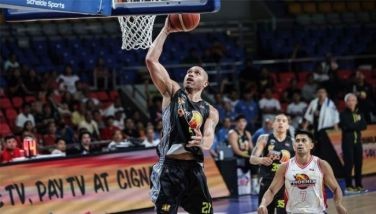How to cover the Olympics
Over the years, this writer has taught several broadcast seminars, workshops and corporate classes. For the layman, many don’t know what our protocols are for covering large multi-sport events like the Olympic Games, Asian Games and SEA Games. There are some slight differences between print and broadcast agencies, but the general procedures are the same.
Firstly, get accredited. Your mother entity (the newspaper, broadcast network or website) must write the organizers to allow you into the venues for the sports you need to cover. There are several tiers for access. Generally, for the Philippines, we request for all-access passes, since we don’t deploy that many people, so our commentators cover several events a day. Larger media organizations split up the venues and sports, so their access is specific to the events they cover on their beat. The IDs are large with your photo, media organization and country on them. They may even allow you free meals at certain venues. The events will determine your day-to-day schedule. For example, many athletics events take place in the morning, while boxing and basketball finish past midnight.
Secondly, work on your communications. This means two things. You need to know where to get cell phone load, WiFi signal and adaptors so you can plug in your phone, laptop and tablet. Japan has all-purpose cards that you can use to pay for almost anything, and machines at public transportation stations so you can top up. Also, you need to learn basic phrases to get around. The front desk personnel at your hotel can give you their business card with “Can you take me to _____?” in their language, for taxi drivers and for asking directions. You can’t underestimate the convenience of this.
Next, learn your routes. Generally, these events have a transportation mall with round-the-clock shuttle buses, vans and cars. In some cases, they shut down areas around playing venues, and only accredited vehicles are allowed in. Always allot extra time to be at the venue an hour and a half or more before your event. You need to get from your hotel to the broadcast or media center to the venue, and back. You’ll also be given a specific position beside the playing court at each venue. It may change from day to day. Once an event is over, the same venue may be reconfigured for another sport. For broadcasters, there are monitors which show the camera angles you will be riding on. Visually, you will follow the host broadcaster. In some cases, you’re given headphones to listen in to the director for the main broadcast. Another monitor provides real-time in-game statistics so you can add meat to your commentary.
Fourth, do your homework. These big events have a media center and broadcast center. The media center provides research on history, rules, participants and schedules for all sports. This will be a huge help in pointing you in the right direction for stories and people to write about. Once the Games start, you won’t have much time to study up. They also have stations for writing and sending out stories, with coffee and snacks. The broadcast center is where international networks rent space to set up their studios, transmission and recording facilities. They could be as small as a few square meters to as big as a basketball court. They also send material to their home countries from here.
Before the actual work begins, we often do features on the host city and famous landmarks, histories of the games, Filipinos who live there, the venues and historical events. You also need to know where to buy food, basic medicines, coffee and water. Those last two are life savers. Broadcasters could be doing various events well over 12 hours a day. Luckily, since its real estate is the most expensive of all, Tokyo is the vending machine capital of the world. You can buy hot meals, drinks, technology, clothing and even exotic cars in vending machines of different descriptions. And of course, bring your masks and other personal protective gear.
In a nutshell, that’s the basic outline of what you’ll need to cover the Olympic Games. As long as you’re well-prepared, you’ll be okay.
- Latest
- Trending































